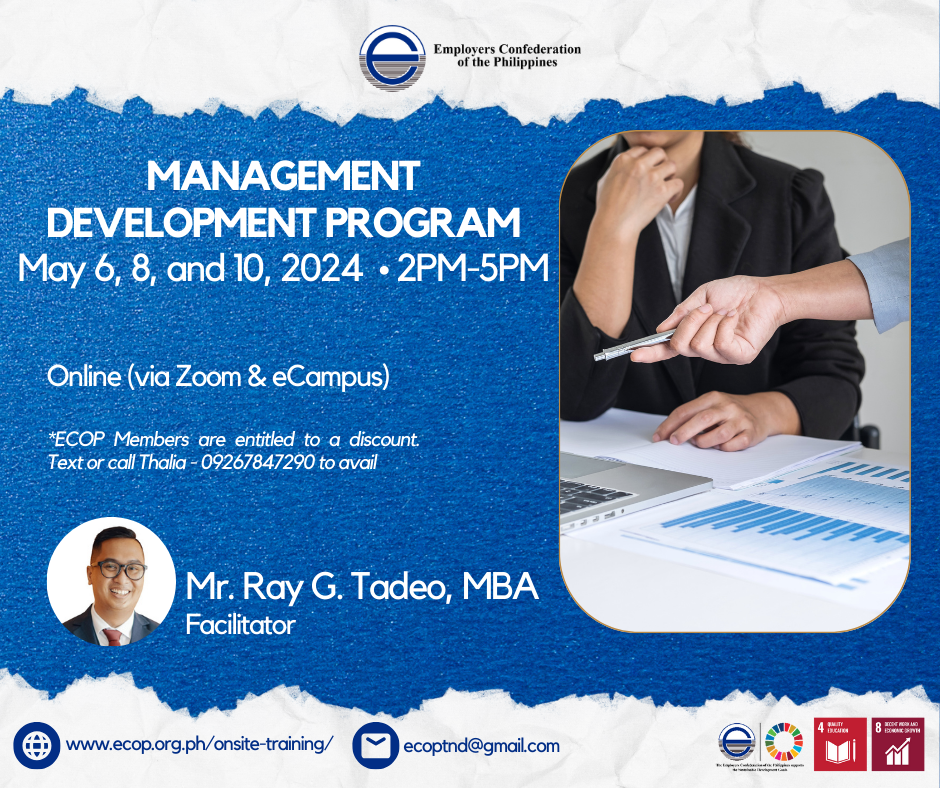Management development is a cornerstone of organizational success. Developing effective managers cannot be overstated in an ever-evolving and competitive business landscape. The management development process entails equipping individuals with the knowledge, skills, and abilities to lead teams, make strategic decisions, and navigate complex challenges. Let’s look at some of the importance of developing managers.
Identifying and Nurturing Leadership Talent
One of the primary goals of management development is to identify and nurture leadership talent within an organization. Exceptional leaders aren’t born overnight; they are cultivated through deliberate learning, mentoring, and skill development. By investing in management development programs, organizations can identify high-potential individuals and provide them with opportunities to grow, ensuring a steady pipeline of capable leaders for the future.
Enhancing Organizational Performance
Effective managers are instrumental in driving organizational performance. They set the tone for their teams, establish goals, and provide direction. When well-trained and continuously developed, managers can lead their teams to achieve higher levels of productivity, innovation, and overall success. Management development programs enable managers to refine their decision-making, communication, and problem-solving skills, ultimately contributing to the company’s bottom line.
Adapting to Change and Innovation
The business world constantly evolves, with new technologies, market trends, and consumer preferences reshaping industries. Management development is crucial in helping leaders adapt to these changes. Managers must possess the ability to embrace innovation, pivot strategies, and lead their teams through periods of transformation. Management development equips them with the agility and knowledge necessary to successfully navigate these dynamic business landscapes.
Fostering Employee Engagement and Retention
Effective managers play a pivotal role in employee engagement and retention. Employees with supportive, capable leaders are more likely to feel motivated, satisfied, and committed to their roles. By investing in the development of managers, organizations can create a positive workplace culture that fosters teamwork, communication, and professional growth. This, in turn, reduces turnover rates and saves on recruitment and training costs.
Building a Strong Leadership Pipeline
Sustainable business growth relies on a strong and continuous pipeline of leaders. Management development programs facilitate the systematic cultivation of talent within an organization, creating a culture of leadership development that spans all levels. This ensures that qualified individuals are ready to take on more significant responsibilities and helps with succession planning, reducing the risks associated with leadership vacancies.
Improved Decision-Making and Problem Solving
Effective management development equips leaders with the skills and knowledge to make sound decisions and solve complex problems. These skills are essential in today’s fast-paced business environment, where managers face multifaceted challenges. By enhancing their decision-making and problem-solving abilities, organizations can respond to issues more efficiently and seize opportunities more effectively.
Enhancing Communication and Conflict Resolution
Effective communication is at the heart of successful leadership. Management development programs often focus on improving communication skills, conflict resolution, and team dynamics. A manager who can communicate, listen actively, and resolve conflicts constructively can build stronger and more cohesive teams, leading to better results and employee satisfaction.
Management development is a cornerstone of organizational success. It identifies and nurtures leadership talent and enhances organizational performance, adaptability to change, and employee engagement. By investing in management development, organizations build a strong leadership pipeline, improve decision-making and problem-solving, and enhance communication and conflict resolution. In a rapidly changing business world, the significance of management development cannot be underestimated—it is the key to nurturing tomorrow’s leaders and ensuring the long-term success of any enterprise.









